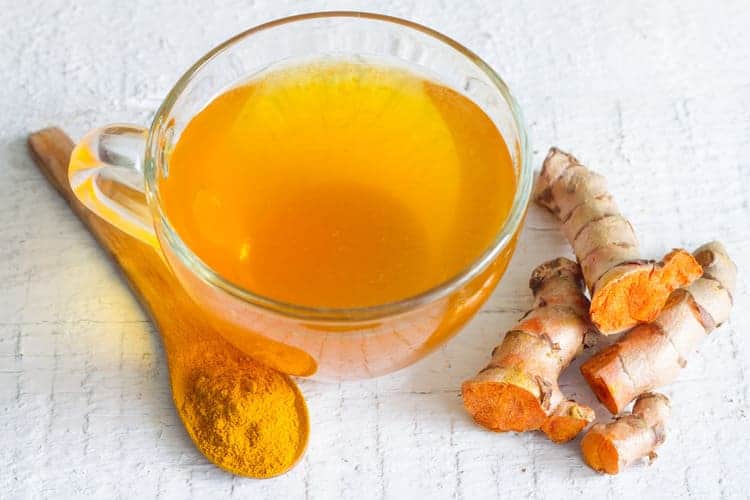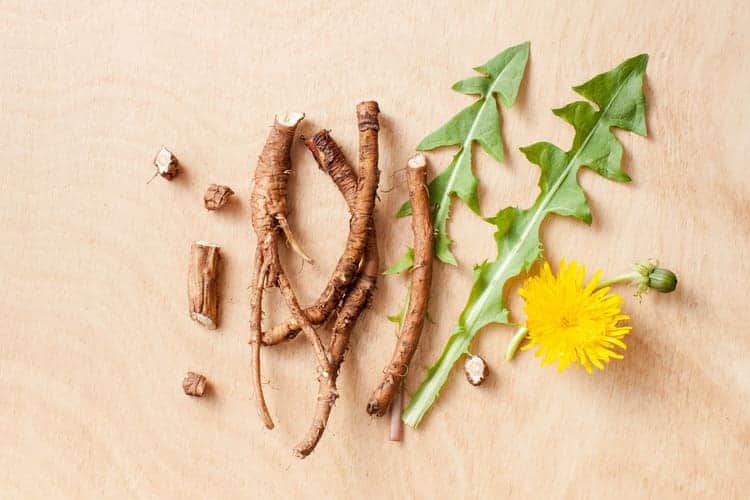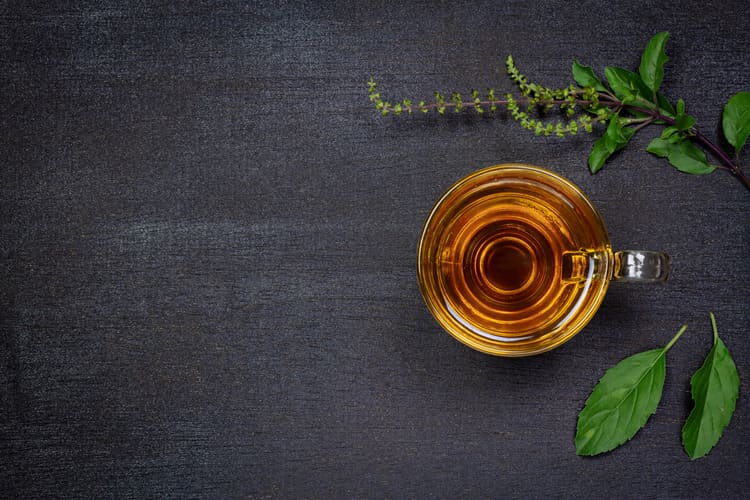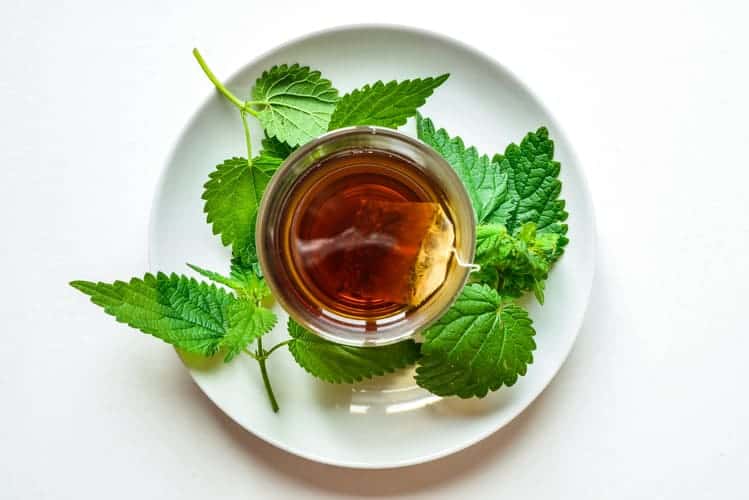
When treating acne, it’s tempting to only focus on your skincare routine.
But the reality is that for many people, there are internal imbalances in the body that are causing flareups. And that is where tea comes in.
Drinking tea can help address a good number of the root causes of acne. In addition, some teas can also be used topically to calm and soothe irritated skin. Therefore, by using teas internally and externally, you can create a holistic skin care plan that supports clear, healthy skin.
That said, some of the common contributing factors include:
- Gut and digestive issues.
- Accumulation of toxins (such as excess candida, parasites, chemicals from food and so on).
- Stress.
- Blood sugar imbalances or insulin resistance.
So, whether you break out when stressed or around the time of your period or you just generally struggle with acne, there’s an herb (or two!) that can give you relief.
Now, let’s get into the details.
NOTE: This article contains some affiliate links and I earn a commission (at no additional cost to you) if you use them to make a purchase.
WHAT TEA HELPS WITH ACNE?
1. Dandelion Root Tea

The dandelion plant is one that herbalists have historically relied on to support liver function.
This matters for your skin because the liver:
- takes in blood, filters it and sends it out for circulation through the body. Your skin receives nutrients from blood, so you definitely want the cleanest, healthiest blood possible!
- produces bile, a substance that is necessary for carrying away waste. You want that waste out of your body because if it stays put, it can create imbalances in the health of your skin.
In addition, if constipation seems to be a contributing factor for your acne, dandelion root may be a helpful ally.
It is an excellent source of inulin, a prebiotic fiber, that encourages bowel movements.
While more research is required to draw solid conclusions about dandelion root tea, there’s conjecture that dandelion extract may counteract post-pimple damage to the skin (source).
Additionally, older research shows dandelion extract may reduce skin inflammation and increase collagen production. This may also benefit certain types of acne (source).
2. Burdock Root Tea
Similar to dandelion, burdock has traditionally been used to help cleanse the body.
In fact, burdock and dandelion are often paired together to amplify their inherent cleansing abilities.
When used on its own, burdock is considered one of the most powerful herbal cleansers. Overall, burdock root:
- Helps with digestive issues (source).
- Contains active constituents that have been studied for their ability to eliminate toxins from the blood (source).
- Has soothing properties that may be particularly helpful for inflammatory types of acne (source).
- Possesses anti-diabetic compounds that may help improve blood sugar imbalances (another contributing factor to pimples) (source).
3. Neem Tea
Neem has been a staple of the traditional Indian system of medicine – Ayurveda – for thousands of years.
Ayurveda categorizes energy into three distinct types and an excess of one of those types – Pitta – is said to cause skin issues (source).
Thankfully, neem is a cooling herb that clears excess pitta from the blood and has also been found to be: (1, 2):
- Antibacterial.
- Antimicrobial.
- Antifungal.
- Anti-inflammatory.
- Antiparasitic.
- Antioxidant.
There’s also anecdotal consensus that neem can help balance the skin’s oil production and the hyperpigmentation left from acne scarring (source).
And finally, if you believe your breakouts are influenced by blood sugar imbalances, neem has shown potential for helping address these imbalances too (source).
4. Holy Basil (Tulsi) Tea

Holy basil is a calming and balancing herb that is classified as an adaptogen.
As an adaptogen, holy basil is part of a family of plants that balance cortisol and support a healthy stress response.
Given that some people experience more breakouts when stressed, an herb like holy basil can be helpful ally for your skin.
In addition, holy basil has been studied for its ability to balance blood sugar, which may further help to calm your skin (source).
Interesting, blood sugar goes up when we’re stressed. So does cortisol (and when cortisol is high sebaceous glands also produce more sebum).
So, by using an herb like holy basil you benefit from a healthier stress response and reduction in cortisol levels, which will have a positive effect on everything else.
5. Green Tea
Green tea is a rich source of antioxidant compounds called catechins.
Research shows that the most well-known catechin in green tea – EGCG – is an:
- Anti-inflammatory.
- Antioxidant.
- Antibiotic.
- Antimicrobial.
These properties make green tea something to consider adding into your acne care plan.
One interesting thing with green tea is that it has been studied for both internal and external use.
For example, drinking green tea (3, 4):
- Lowers inflammation (thanks to its EGCG content).
- Helps to lower stress (thanks to the amino acid, L-theanine).
In addition, evidence shows that topical application of green tea is beneficial for (source):
- Redness.
- Swelling.
- Irritation.
Lastly, some research also indicates that topical and internal use of green tea reduces sebum production (source).
For a deeper dive into this plant, be sure to read this guide on green tea vs matcha for skin.
6. Vitex (chasteberry) Tea
Throughout history, vitex has helped women address a host of hormonal imbalance symptoms (source).
So, not surprisingly, vitex is sometimes used as a natural remedy for hormonal acne.
Although there is anecdotal evidence showing that it can be helpful, it doesn’t work for everyone.
In fact, for some people, vitex may worsen hormonal imbalance symptoms like acne.
This is due to the herb’s effect on hormones: it increases LH (luteinizing hormone) slightly lowers FSH (follicle stimulating hormone) and increases progesterone.
While this action is helpful for some people, if you are a woman with PCOS acne, vitex may not actually help you. This is because PCOS patients tend to have elevated LH so vitex would further aggravate the situation (this guide provides more insight into how vitex works).
This herb is very potent and it’s best to consult with a doctor or herbalist before using to make sure it’s the right for your particular hormone profile.
It can aggravate some hormonal imbalances associated with PCOS
7. Spearmint Tea
Spearmint tea has become a popular natural remedy for acne mainly because of research suggesting that it is is anti-androgenic (5, 6).
In addition, spearmint acts as an (source):
- Anti-bacterial.
- Anti-inflammatory.
- Antioxidant.
These effects are largely due to the plant’s polyphenol content – particularly rosmarinic acid – which has an anti-inflammatory effect when used topically (source).
8. Turmeric Tea
When it comes to reducing systemic inflammation, turmeric is often considered one of the best options.
As discussed in this article, inflammation can contribute to acne.
So, anything you can do to lower that inflammation, can save your skin.
In addition, turmeric is a popular home remedy for inflammatory skin conditions like acne (source).
This is mainly due to the fact that turmeric is an antioxidant, an antimicrobial, supports wound healing and helps to balance skin tone.
9. Nettle Leaf Tea

Similar to dandelion and burdock, nettle is often used to support the body’s natural detoxification processes.
In addition, nettle has been studied for its ability to regulate blood sugar (which plays a role in the progression of acne).
But perhaps the thing that is most important about nettle is that it is very rich in minerals.
Part of having healthy skin is getting enough nutrients into your diet. So, a strong brew of nettle tea can help you get more minerals that support a healthy body and skin.
For a deeper dive into nettle – plus a simple recipe for a nettle infusion – read this post on nettle and hormones.
HOW TO USE TEA FOR CLEAR SKIN
1. Drink Daily
The best way to use tea for acne is to drink it daily.
As far as how much to drink, it is common to drink 1 to 2 cups per day.
That said, the maximum dosage can vary based on the tea and your health status.
So, it’s best to get a custom customized dosage from an herbalist or holistic doctor.
2. Apply Topically
These days, plants like green tea and burdock appear in many skin care products.
While you can reach for any commercial product, you can also make your own DIY toner at home. To do this, simply:
- Brew a regular cup of the tea of your choice.
- Let the tea cool down.
- Transfer the tea to a bottle.
- Apply the tea to your skin like you would any other toner.
Another way to use these teas is as the main liquid in your DIY face masks.
For example, you can mix the teas into clay masks, honey masks, oatmeal masks and more!
FAQs ABOUT TEA FOR CLEAR SKIN
What can I drink to clear acne?
Besides teas, drinking smoothies and juices can help to support your skin.
Use these guides on how to make an anti-acne smoothie and juicing for hormone balance for recipes and tips.
Does tea cause hormonal acne?
Tea is not known to cause hormonal acne. However, if you rely on ready-made tea drinks, they may contain additional ingredients that mess with your hormones. Many of these teas contain sugar and sometimes, preservatives or synthetic flavors. So it’s best to always make your own tea, from scratch, at home.
CONCLUSION
Although the individual herbs listed in this article can be helpful on their own, a blend that combines two or more of them will often be more helpful.
This is because acne is often caused by multiple factors.
Therefore, it is much more efficient and effective to drink tea made from several herbs.
Since there is no one product on the market that works for everyone, I prefer to make my own tea.
Yes, it takes more effort but you get to blend the herbs that matter for you. If you’d like to make your own blend, then be sure to check Mountain Rose Herbs or Starwest Botanicals.
They are my go-to companies for bulk herbs and they have a massive selection that doesn’t disappoint.
You Might Also Like:
Peppermint Tea vs Spearmint Tea for Acne: Which Is Better?
Top 13 Herbal Teas for Balancing Women’s Hormones Naturally
How To Get Rid of Hormonal Acne Naturally: A 7-Step Plan For Clear Skin
Adaptogens for Hormonal Acne: What To Use and How To Use
Home Remedies for Hormonal Acne (Every Woman Should Know!)
Liver and Hormonal Acne: 6 Tips To Improve Your Skin Naturally

